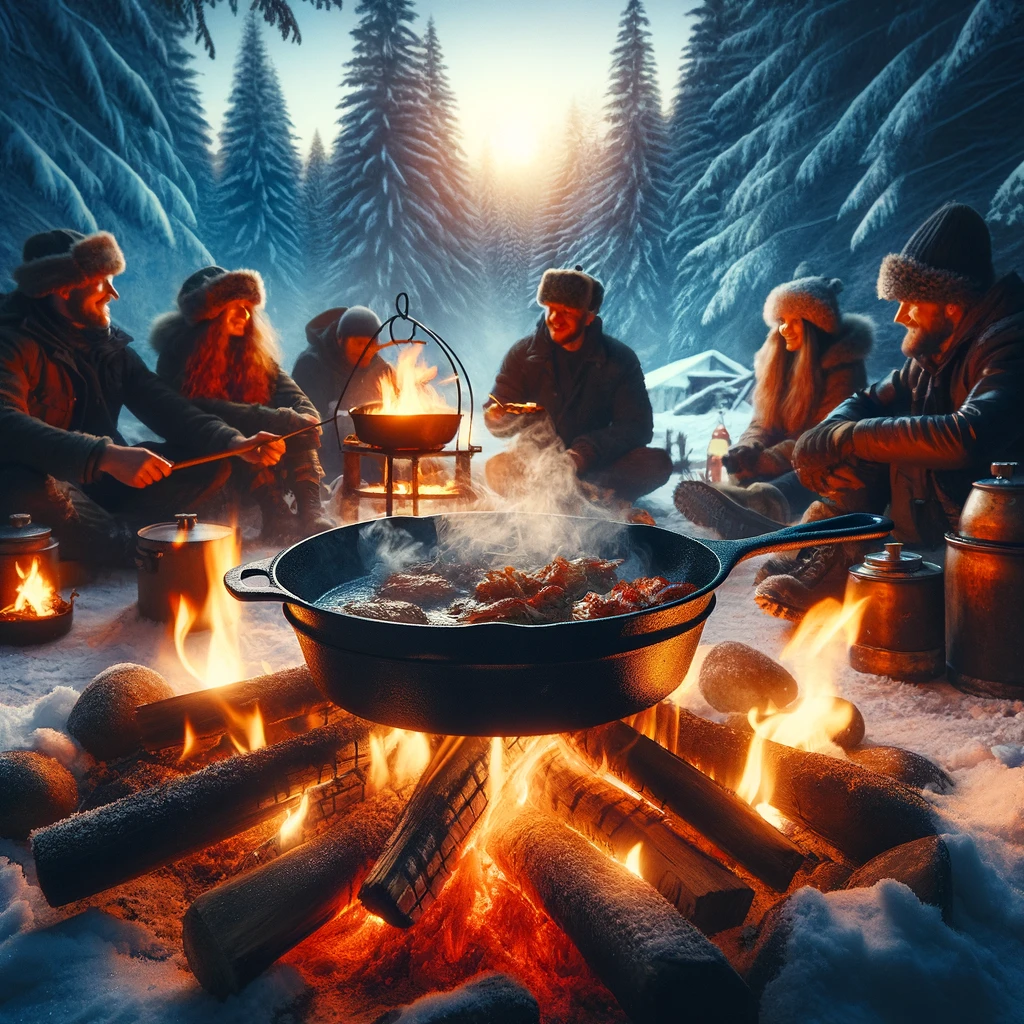Winter camping offers a unique and exhilarating experience but presents distinct nutritional challenges. The cold weather increases your body’s calorie demands, making proper meal planning crucial for a safe and enjoyable trip. This guide will help you understand the nutritional needs of winter camping and provide you with delicious, high-energy meal ideas to keep you warm and energized throughout your adventure.
Understanding Nutritional Needs for Winter Camping
In cold environments, your body burns more calories to maintain its core temperature. This increased energy expenditure means you’ll need to consume more calories than you would during summer camping trips. A balanced intake of macronutrients is essential: carbohydrates for quick energy, proteins for muscle repair, and fats for long-lasting warmth.
Hydration is equally important in winter, even though you might not feel as thirsty. Cold air is often dry, and you lose moisture through respiration and sweating (yes, you still sweat in winter!). Drink water regularly throughout the day to prevent dehydration.
Essential Ingredients for High-Energy Winter Meals
When planning your winter camping meals, focus on nutrient-dense foods that provide a lot of energy in a compact form. Some excellent options include:
- Nuts and seeds (almonds, walnuts, pumpkin seeds).
- Dried fruits (raisins, cranberries, apricots).
- Hard cheeses.
- Healthy fats (avocado, olive oil, nut butters).
- Complex carbohydrates (quinoa, oats, lentils).
- Lean proteins (jerky, canned fish, powdered eggs).
These ingredients form the foundation of many high-energy winter camping meals.
Hot Beverages for Energy and Warmth
Remember the importance of warm drinks in winter camping. A high-calorie hot chocolate made with whole milk powder and a dollop of peanut butter can provide both warmth and energy. Spiced cider with added electrolyte powder is another excellent option for staying hydrated and warm.
Cooking Techniques for Winter Camping
Efficient cooking is crucial in cold weather. Use a windscreen to protect your stove and conserve fuel. Insulate your cooking pots with cozies to retain heat and reduce cooking time. For more tips on staying warm while winter camping, check out our guide on layering strategies for staying warm while winter camping.
Meal Planning and Preparation
Calculate your calorie needs based on your activity level and the expected temperature. Plan for about 3,500-4,500 calories per day for most winter campers. Prepare and package meals at home to minimize prep time at camp. Use resealable bags to reduce waste and make meals easy to access with gloved hands.
Special Dietary Considerations
For vegetarian or vegan diets, focus on plant-based proteins like lentils, beans, and nuts. Gluten-free campers can substitute regular pasta with rice or quinoa in recipes. Always pack extra food to account for increased appetite and potential emergencies.
Food Safety in Cold Weather
Proper food storage is essential to prevent foodborne illnesses. Keep perishables insulated and close to your body to avoid freezing. Use a bear canister or hang food away from your campsite to deter wildlife. For more information on winter camping safety, including how to keep your tent warm during winter camping, check out our comprehensive guide.
Conclusion
Proper nutrition is vital to an enjoyable and safe winter camping experience. By focusing on high-energy, nutrient-dense foods and planning your meals carefully, you can ensure that you have the fuel you need to make the most of your winter adventure. Experiment with these recipes and adapt them to your preferences to find your perfect winter camping menu.

Leave a Reply